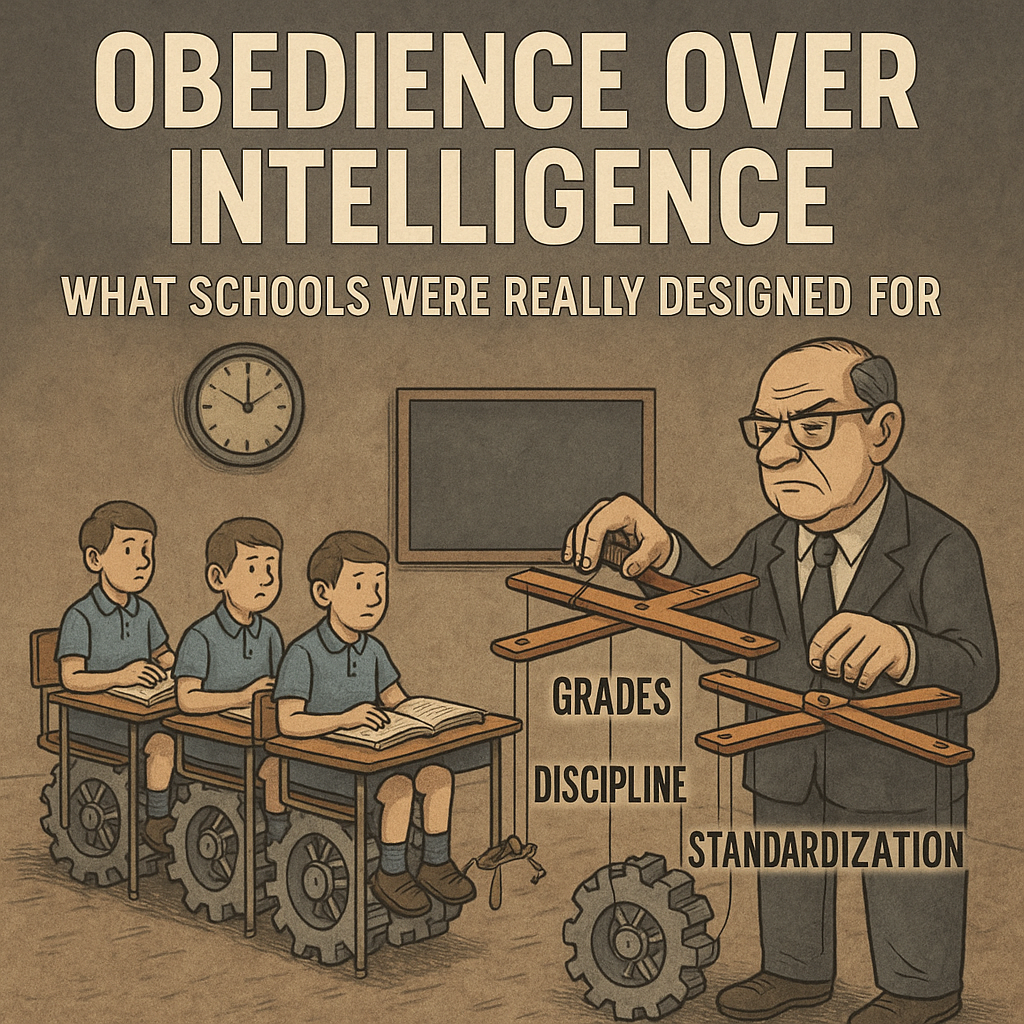✅ 1. Purpose of This Part
This part reveals how the modern education system wasn’t designed to unlock creativity or nurture intelligence — but to produce obedient, rule-following citizens who serve the needs of industrial, political, and military agendas. We’ll trace its history, methods, and the deep psychological conditioning it imposes.
📚 2. What Most People Believe (The Official Narrative)
“Education is the key to success.”
“Schools help children discover their potential.”
“Every child is special — and school helps bring that out.”
These are lovely ideas. But are they true? Or are they carefully manufactured slogans?
💣 3. What Really Happens (The Hidden Structure)
The modern schooling system — with bells, classrooms, rigid age groupings, and standardized tests — wasn’t created for learning. It was modeled after the Prussian military system in the 18th and 19th centuries, designed to:
- Instill discipline
- Enforce obedience to authority
- Create uniform, compliant workers for factories and bureaucracies
Key features:
- 🔔 Bells that mimic factory shifts
- 🎓 Age-based grouping regardless of ability
- 🧍♂️ Uniforms to suppress individuality
- 📋 Grades to rank, shame, and reward
🧨 4. Deep Dark Reality / Harsh Truth
“The system does not want thinkers. It wants doers — trained to obey, not question.”
The design was intentional. Education became industrialized mind control, with little space for personal exploration, emotional growth, or original thought.
- Creativity is punished as “disruption.”
- Questioning the system is called “disrespect.”
- Slow learners are labeled “failures.”
- Fast learners are bored into mediocrity.
📖 5. Real-World Examples / Historical Context
- Prussian Model (18th Century): Designed to produce obedient soldiers.
- Horace Mann (U.S.): Imported the Prussian model in the 1800s.
- British Colonial System: Created schools to raise clerks for administration, not leaders.
- Industrial Age: Schools became pipelines for factory labor — trainable, quiet, replaceable.
“We must produce workers who can follow instructions, show up on time, and never question orders.” – Unspoken but implemented worldwide.
📊 6. Psychological and Societal Impact
- Mental health crisis: Anxiety, burnout, comparison-based self-worth.
- Lost individuality: Talents ignored in favour of scoring systems.
- Intellectual damage: Memorisation > curiosity.
- Long-term consequence: Adults afraid to think for themselves, constantly seek permission.
📌 You weren’t born to just obey rules — you were born to question, to create, to explore.
🔁 7. How This Links to the Next Part
If schools weren’t truly built to help us learn, then what is real learning, and how does it differ from what’s taught?
That’s what we explore in Part 2: The Lie of Learning – What Education Was Supposed to Be.
🎯 8. Final Question to Reflect On
“Are we educating children to think for themselves — or training them to follow instructions without resistance?”

